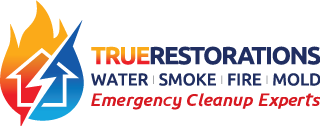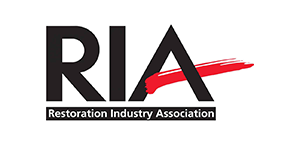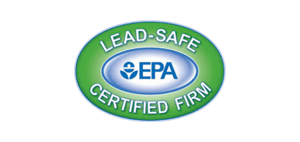Did you know mold can start growing in just 24 to 48 hours? This happens when there’s not enough air, too much humidity, and moisture in the home. Mold spores are tiny and can travel on air, clothes, and pets. This makes it easy for mold to spread from one room to the whole house.
This is why it’s important to prevent mold in every room. If mold grows in one room and isn’t stopped, it can spread to the whole house. This is a big problem for keeping your home mold-free.
Key Takeaways
- Mold can start growing in just 24 to 48 hours with the right conditions.
- Airborne mold spores can migrate on air currents, clothing, and pets, leading to widespread contamination.
- Ensuring proper ventilation and controlling humidity levels are critical for whole-house mold prevention.
- Addressing mold in one room is essential to prevent it from spreading throughout the entire home.
- Professional mold remediation services can help prevent structural damage and health issues related to mold.
How Mold Spreads Throughout the Home
Mold spores are very light and can easily spread through the air. They can travel through the whole house through HVAC systems. When air moves through doors or windows, spores can land on many surfaces, starting mold growth.
Structures with leaks or gaps around windows and doors let spores in fast. This makes mold spread even quicker.
Mold can stick to clothes, pets, and things we carry. These items help spores move to new places. Spores can start growing new mold in just 24 to 48 hours. Visible mold can appear in two weeks.
To stop mold, we need to control moisture. Mold loves humid places. Keeping humidity levels between 30% and 50% indoors is key. Materials like wood or paper should stay dry, with moisture under 15-20%.
Here are some ways to stop mold:
- Sealing cracks and gaps around windows and doors.
- Regularly maintaining gutters and directing water away from the home’s foundation.
- Utilizing dehumidifiers to sustain appropriate humidity levels.
- Cleaning surfaces in damp areas, like basements, with vinegar or bleach weekly.
- Inspecting and servicing HVAC systems periodically to ensure they are not circulating mold spores.
Products for mold removal might not get rid of all mold. For serious mold problems, it’s best to call professionals. They can find and fix the mold, clean the air, and keep your home healthy.
Health Risks Associated with Household Mold Contamination
Being around household mold can cause health problems. This is especially true for those with mold allergies, asthma, or weak immune systems. Common issues include breathing troubles like wheezing and coughing. Allergic reactions like sneezing and itchy eyes can also occur.
Long-term mold exposure can lead to serious lung problems. For example, hypersensitivity pneumonitis is a lung inflammation. Molds like Aspergillus can cause aspergillosis, affecting the lungs and sinuses.
Mold spores are everywhere indoors and can get inside through the air or on objects. The Environmental Protection Agency (EPA) suggests keeping humidity below 60% to stop mold. Mold can grow on many things, like fabric and wood, causing allergy-like symptoms.
Those with mold allergies and asthma are more likely to have asthma attacks in moldy places. Symptoms include skin and eye irritation, sneezing, and runny nose. In some cases, mold can even cause sinusitis or more severe inflammation.
To avoid health risks from mold, controlling indoor moisture is key. The EPA suggests using a dehumidifier to lower moisture levels. Regular cleaning and good ventilation can also help prevent mold growth.
For big mold problems, getting professional mold remediation help might be needed. When cleaning up mold, wear protective gear like N-95 respirators and rubber gloves. This helps prevent breathing in mold spores.
Conclusion
It’s important to tackle mold early in your home to stop it from spreading and to protect your health. Simple steps like checking for leaks, making sure your home is well-ventilated, and controlling humidity can help a lot. Places like bathrooms, kitchens, and basements are more likely to get moldy and need extra attention.
Mold can really harm your health, especially for people who are more sensitive. It can cause allergies, make asthma worse, lead to lung infections, and irritate your eyes. Kids, older adults, and people with lung problems or weak immune systems are at higher risk. Research shows that being around dampness and mold can increase asthma by 30-50%.
For small mold problems, you might be able to clean it up yourself with the right gear. But big mold issues need a pro to make sure it’s done right and safely. It’s important to follow guidelines from the CDC and EPA for mold removal.
Knowing how mold spreads and affects your health helps you take action. Using mold removal services when needed, keeping humidity levels in check, fixing leaks fast, and improving air flow in your home all help keep mold away. This way, you can make your home a healthier place to live.

























